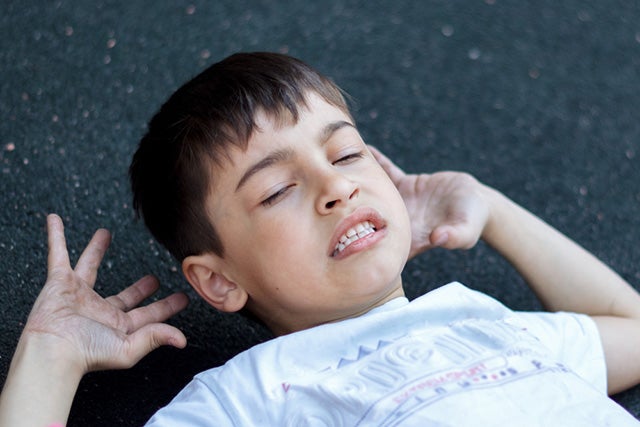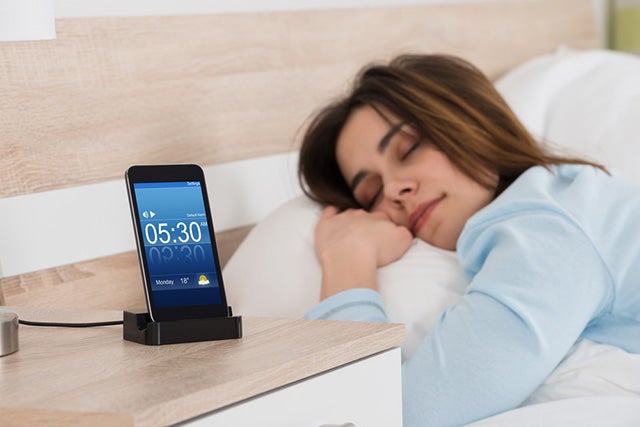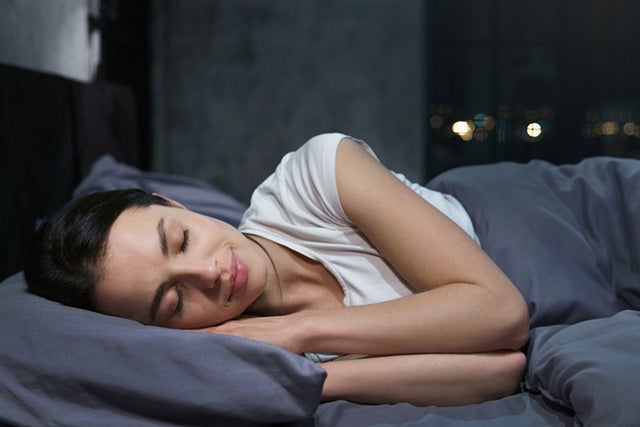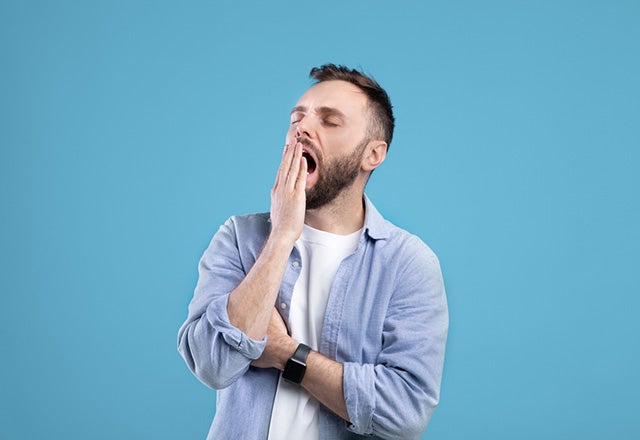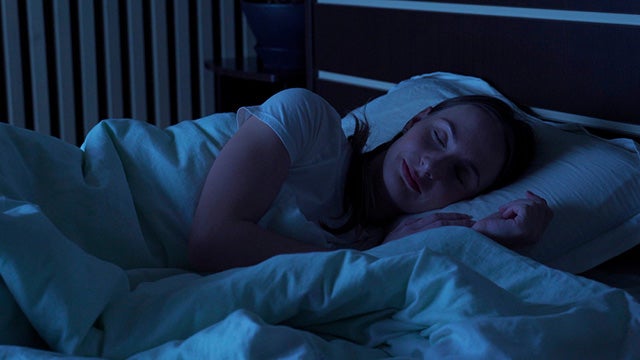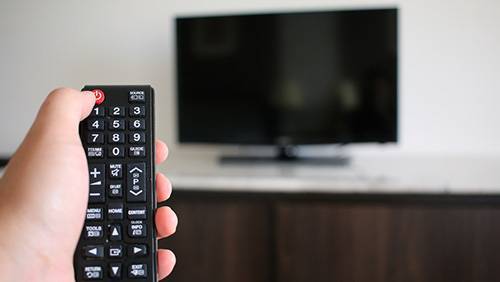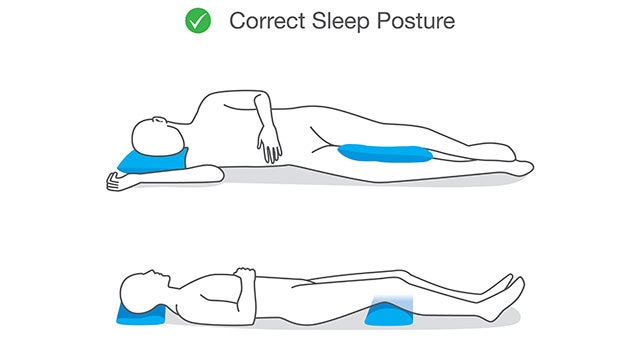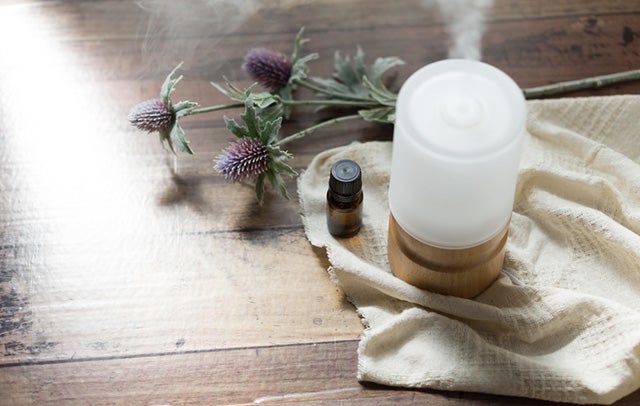It is important to first state that the suggestions provided here are tips for a more comfortable, safe sleep and are not to be considered medical advice. If you are concerned you have suffered from a concussion, then you should always seek medical assistance and follow your doctor’s orders concerning your safety.
Concussions are no laughing matter, and the physical soreness and mental fog that can ensue can make it hard for you to sleep. This can be compounded by the fact that you may also be forced to wake every few hours, making it difficult to get back to sleep.
Of course you should first and foremost follow your doctor’s advice, but you can also take a few steps to make yourself more comfortable as well so you can rest and heal from the trauma.
What is a Concussion?
A concussion is a traumatic brain injury caused by a bump or blow to the head, or hit to the body that causes your brain to move within your skull. It can accompany fractures to the skull or bruising to the head, neck and back injury or soreness, as well as a myriad of other mental and physical ailments – such as confusion, tiredness, trouble with vision, headaches, body soreness, trouble talking, anxiety, insomnia, and many more.
Even though a concussion isn’t usually life threatening, it should always be reported to medical professionals to rule out more extensive physical damage since not everyone experiences the same symptoms, and the severity of the problem can easily be hidden.
Levels of Concussions
Concussions are given three grades to explain their severity, but even one that receives a low grade may be more severe that what is initially thought, which is why seeing a doctor following the event and again 24 to 72 hours later is so important. Any blow to the head or hard jolt to the body should be assumed to have caused a concussion, no matter how minor.
Grade 1: Symptoms typically last less than 15 minutes and involve no loss of consciousness.
Grade 2: Symptoms last more than 15 minutes and involve no loss of consciousness.
Grade 3: Loss of consciousness and is considered severe.
Tips for Better Sleep After a Concussion
Once cleared by a doctor, it is considered safe to sleep following a concussion. Occasionally a doctor may recommend that a person be monitored or woken every so often if a severe concussion is suspected.
Regardless of the grade of concussion, sleep may be hard to achieve due to body aches and pains and the mental state of the person. Sleeping is important to the healing process, so finding a way to rest is important even if sleep patterns are affected from the injury.
Take a look at these tips for a better sleep after a concussion:
1. Keep a Sleep Schedule
Go to bed each night and wake each morning at approximately the same time. This helps your body get into a natural circadian sleep cycle so it recognizes when it should be resting, and when it should be awake. This can help you fall asleep faster each night too, and support a deeper, more restful sleep.
2. Get the Proper Amount of Sleep
Even though as adults we may not all need the same amount of sleep to function properly, you should pay attention to what is suggested to ensure you are getting at least the minimum that is suggested. This is especially important for children and young adults whose bodies are still growing.
3. Try to Avoid Naps
Napping during the day may interrupt your sleep at night. Even if you are tired, try not to nap any longer than 20 minutes. This can restore you without offsetting your natural sleep cycles. If this isn’t possible, get up and move to help increase circulation and then maybe get to bed a bit earlier that night.
Sleep is part of the healing process, so if you can nap without ruining your sleep, do so.
4. Avoid Stimulants
Caffeine, sugar, alcohol, and nicotine can all ruin your sleep and work against your natural sleep hormones and processes. Avoid these at least 2 to 6 hours before your regular bedtime. Also, they may be counterproductive to your healing process, so be sure to follow your doctor’s advice concerning their use.
5. Incorporate Relaxing Techniques
Meditation, yoga, and breathing exercises are all suggestions to incorporate into your regular routine before bed. These help you relax and prepare your mind for sleep.
6. Keep the Bedroom Cool and Dark
Your body core temperature drops slightly while you sleep to help slow respirations and your heartbeat for a deeper, more restful sleep. A cooler atmosphere is conducive to the process. Light also can interrupt natural melatonin release, so a darker room can help stimulate rest as well.
7. Avoid Screens
Televisions, phones, ereaders, and tablets all can emit blue light, which mimics daylight and can offset natural melatonin release. Melatonin is the hormone responsible for sleep, and when it is inhibited from releasing duwe to natural light levels, this can cause insomnia or make it difficult to feel sleepy. Avoid screens for 1 to 2 hours before bedtime to keep this from being an issue.
You might want to read this: How Electronics and Technology Affect Sleep Quality
8. Keep Your Body Aligned
The proper mattress and pillow combination is important for your body’s posture. Spinal alignment occurs when you sleep in a manner that supports your sleep position. For back sleepers this means you need a more firm surface and a low profile pillow that supports the back of your neck while allowing your head to rest in alignment with the rest of your spine. Stomach sleepers need a more firm surface and no pillow for the most support. Side sleepers need a reactive sleep surface to cradle the heavier hips and shoulders, and a loftier pillow to hold the neck and head in a straight line.
9. Enjoy a Warm Beverage
Chamomile tea is a soothing, relaxing drink and can help you relax and fall asleep. Warm milk and honey can also do the same. Look for sleepy herbal tea blends designed for evening and nighttime use. These can also be soothing to the stomach and aid in digestion.
You might want to check this: Quick and Easy Tea Recipes for Better Sleep
10. Diffuse Natural Oils
Natural oils, such as lavender, help induce a calming, relaxing feeling and have long been used to help with a deeper, more restorative sleep. It is a healing herb for body and mind. Other essential oils can do the same, so be sure to do some research to customize your own relaxing blends.
11. Ask About Natural Sleep Supplements
Certain natural sleep supplements, such as synthetic melatonin, can help with getting a better night’s sleep. These are almost always over the counter and a pharmacist can help you find a solution.
If sleep problems persist, you can also speak with your doctor about other temporary prescriptions.
You might be interested: Natural Sleep Aids for a Better Night’s Sleep
Wrapping It Up
Concussions are serious injuries that should always be checked out by a medical professional. They are considered a traumatic brain injury and do not require your head to have been hit for them to occur.
Unfortunately, sleep may be difficult after a concussion, and so it is important you take the steps required for an actual restorative sleep that can help you recover and heal. Along with your doctor’s support and suggestions, the above list are all excellent steps to take for a better rest.
Photo credit: Pepermpron/Shutterstock; Rocketclips, Inc./Shutterstock; justoomm/Shutterstock; Andrey_Popov/Shutterstock; Damir Khabirov/Shutterstock; Prostock-studio/Shutterstock; Szasz-Fabian Jozsef/Shutterstock; Dean Drobot/Shutterstock; Grustock/Shutterstock; Supat Toadithep/Shutterstock; solar22/Shutterstock; Tasha Cherkasova/Shutterstock; wing-wing/Shutterstock; Nanako Yamanaka/Shutterstock


